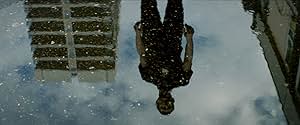We meet our protagonist, Dave when he starts off as an transporter of wholesale quantity illicit drugs for a firm. The job pays very well and Dave who is far more accustomed to being 'skint' than 'flush' is not sure what to do with his newfound riches. Dave helps himself to liberal samples of the wholesale product he transports while also buying other brands of artificial joy to supplement. We discover that Dave has a moderation problem. But business is booming and Dave brings in his friend, who also happens to be ethnic, to share the wealth. Trouble is, the tight-nit corporate culture Dave is a part of does not really celebrate ethnic diversity. This poses greater problems down the road. As business picks up, so do Dave's responsibilities where he is promoted to also administer penalties to 'delinquent clients'. This promotion leads to an awakening of sorts within Dave as he discovers he has something called a conscience. Not just any conscience it seems, rather one that wreaks havoc on par with the Incredible Hulk on a tantrum. Immediately Dave attempts to bludgeon his conscience through upping his dosages of wholesale product and other substances in a bender that would put frosh week students to shame. But Dave's conscience also has the power, strength, and the resilience of The Incredible Hulk and will not be vanquished. Dave runs to a local mosque that his little ethnic friend frequents in a desperate bid to satiate his conscience. Yet when our protagonist sees and listens to the worshippers, he dismisses the lot as 'brainwashed'. That is, until Dave encounters the dark night of his beleaguered soul and feels he has nowhere left to run. We then have what writer William Faulkner phrases as, 'the heart in conflict with itself', torn between the rending demands of the material world and ravenous desire for inner peace.
Snow in Paradise is a debut film by Andrew Hulme based on the memoirs of actor/co-writer Martin Askew. Hulme already has a distinct style, the 'claustrophobia-inducing up-close-and-too-personal camera framing' such that the odd wide shot allows the audience to gasp for air and lower her/his pulse. Ernest Hemingway may be an influence because the film intimates that there is not snow, but an iceberg in paradise where the audience gets the tip and the rest of the story is beneath the waters. Symbolic hints point towards a larger, darker story and Hulme is not big on exposition, rather leaving the audience to flail or tread for answers. We even have a boxing scene that would do Papa Hemingway proud. The cinematography is accomplished and clean, clinical almost. Yet most striking is the music score, or rather, the lack of it. Sparse plucks from a bass during intense scenes, but mostly silence so the audience can reflect on what is happening instead of music directing emotion. Hulme is no spring chicken when it comes to the film, having edited for such directors as Anton Corbijn (Control, The American) and Julian Jarrold (Red Riding: The Year of Our Lord 1974). Like Daniel-San from The Karate Kid, Andrew Hulme has 'waxed-on', 'waxed-off' for decades and is now ready to crane-kick his way into film goers hearts, though the fare he offers is a tad bleak.













